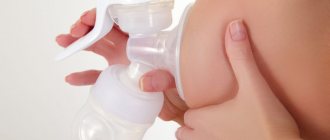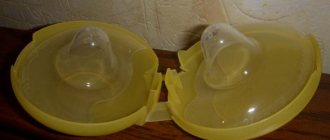| Place | Name | Characteristics in the rating |
| TOP 10 best teas for lactation |
| 1 | Weleda Stilltee | Better efficiency. Safety of use |
| 2 | Fleur Alpine | High quality |
| 3 | Hipp fruity | Environmentally friendly product |
| 4 | Mom's tea "Health" | The best combination of price and quality |
| 5 | Humana | Improves liver and kidney function |
| 6 | Bebivita | Has anti-inflammatory properties |
| 7 | Leros Baby Leros sro | Safe composition |
| 8 | Lactavit | Quick results |
| 9 | Lactomama Evalar | Contains essential oils |
| 10 | Grandmother's basket Sivma | Best price |
The most wonderful event in the life of every woman is the birth of a child. It is accompanied by anxious and happy moments, as well as enormous responsibility for the baby’s health. According to the recommendations of the World Health Organization, the best food for a newborn is mother's milk. It contains all the useful components that ensure the correct and healthy development of the child. The mother should try to ensure that this healing nutrition is provided to the baby. However, genetics or stress conditions can lead to a lack of milk supply. In this case, special teas have been developed to help mothers to increase lactation.
The composition of the drinks includes various herbs. Their properties can improve milk production. Any tea for lactation contains only natural ingredients, which makes it absolutely safe. It will not harm either the mother’s body or the baby’s health. The effectiveness of the product has been tested by many women. A nice warm drink is great for increasing your baby's intake of nutritious food.
General recommendations for increasing milk production
If you firmly believe in the need to drink lactation tea, follow these safety principles:
- Do not drink the herbal drink for more than a week. If you make tea a regular dish in your diet, you can provoke hyperlactation and the development of congestion in the glands.
- Monitor your body's reaction. If you experience migraines, stomach pain or other unpleasant symptoms, stop taking herbal tea.
- Stick to the prescribed dosage indicated on the package. Increasing the number of doses and increasing the strength of the drink leads to the development of adverse reactions.
Do not forget to restore lactogenesis using other methods: frequent latching of the baby, changing the mammary glands during subsequent feedings, breast massage.
Purpose and effect of lactogonic drinks
Young mothers often have suspicions about insufficient breast milk production. Most often this happens 12 weeks after the start of feeding. The mammary glands no longer swell and the usual fluid does not leak from them. In fact, this is due to process optimization. The child already knows how to handle the breast, receives as much food as he needs, and the glands produce exactly this volume.
Lactation teas and other stimulants should be considered as help when the following signs appear:
- Failed wet diaper test. For a day you need to give up the diaper, replacing them with cloth diapers. If the baby pees less than 10-12 times per day, this indicates insufficient feeding.
Advice: Do not try to determine the adequacy of milk production by carrying out control weighings or estimating the volume of expressed product. These approaches will not give accurate answers and can only confuse, forcing you to take lactogenic products unnecessarily, or abandon them in cases where they are really necessary.
- Lag in weight gain. This can be recorded both independently and in the clinic during regular examinations.
- General deterioration of the baby's condition. Tea to increase lactation or its analogues are necessary if the child’s activity is sharply reduced, his mucous membranes and skin are very dry and pale, the baby sleeps a lot and is characterized by physical weakness.
Lactation tea is not usually used to prevent milk deficiency. If you use the product without obvious need, there is a risk of developing hyperlactation. This condition will cause many uncomfortable moments for the mother due to the accumulation and stagnation of the product, and will negatively affect the digestion process of the newborn.

There are situations in which tea for nursing women may become a necessity:
- Forced interruption of breastfeeding for a significant period. In this case, it is lactogenic products that will help quickly return the feeding process to the right direction.
- Transition to mixed feeding. If supplementary feeding was introduced too early, lactation will be significantly suppressed. Properly selected tea for lactation will help restore indicators.
- Pathological lack of breast milk. Initially, it is recommended to review the mother’s diet, adjust it if necessary, and conduct several massage sessions. If these manipulations do not help, then measures aimed at relactation are carried out. In this case, the baby is advised to use supplementary feeding in the form of an adapted mixture, and the mother is prescribed teas for lactation. After some time, the newborn can be returned to full breastfeeding.
It is worth considering that teas for nursing mothers will not give the desired effect if they are not used according to instructions and do not accompany therapy with frequent emptying of the breast. The choice of a suitable product also needs to be treated with increased attention, otherwise you can bring more harm to the situation than good.
How to determine the need for tea to increase lactation
The ideal situation is when milk production meets the baby's needs. This is what lactation consultants recommend striving for. To determine the balance, it is useless to use methods of weighing babies before and after feeding, or measuring the amount of expressed milk. Monitoring the child helps.
- Do a wet diaper test. Give up diapers for a day and count how much your baby urinates. If less than 20 times, then he does not get enough milk.
- Pay attention to the results of the monthly weighing. Being underweight is a sign of malnutrition.
- If the child’s condition is alarming, the lips are dry, activity is weak, and the skin is pale.
Consume drinks that promote lactation only when necessary.
Important! If these signs are not present, the child is cheerful, calm, and sucks well, then it is not recommended to drink lactogenic drinks. They lead to hyperlactation, which can lead to stagnation of milk in the breast and indigestion in the baby.

The effect of herbs on lactation
Despite its completely natural composition, tea for lactation should be selected with extreme caution. Some medicinal herbs actually help improve milk production, while others only worsen the well-being of a nursing woman.
So, what plants are aimed at improving lactation, and what are their pros and cons?
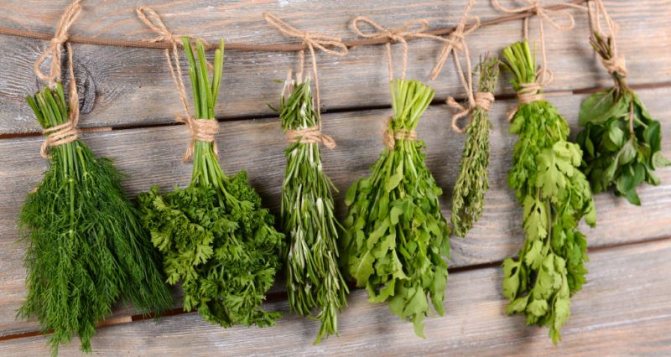
- Caraway. The popular seasoning is quite often included in lactogenic tea, but so far scientists have not proven its positive effect on improving milk production. But cumin also does not cause negative reactions.
- Alfalfa. It is often included in the list of lactogonic plants, but in case of long-term use, the herb leads to inhibition of hematopoiesis. Therefore, you should not drink alfalfa for a long time.
- Fennel. The lactogenic effect has not been confirmed, but it is often included in “dairy” mixtures and drinks. It helps against colic, but with prolonged use, allergies in the form of skin rashes in the child are possible.
- Dill. It is a close relative of fennel, which is why it is also included in some lactation drinks. In addition, dill tea helps with infant colic without causing unwanted consequences. Dill drink should be brewed at the rate of 1 tbsp. for 300 ml of boiling water.
- Anise. A safe plant for a nursing mother, it is added to some lactogenic teas. Drinks with anise also help with newborn colic.
- Ginger. Reviews from women indicate that ginger tea improves milk production and improves the condition of a baby suffering from colic. In addition, ginger drink is recommended to be brewed to strengthen the immune system and fight viral infections. Contraindication – allergies in the baby or mother.
- Fenugreek. Scientists have not elucidated the mechanism of its effect on lactation, but data confirm that it contains a special plant estrogen, which is an analogue of a hormonal substance in women. A lactogenic drink with fenugreek also facilitates the menstrual cycle.
- Rosemary. There have been no reliable studies on enhancing lactation, but it has been found that prolonged use in serious quantities causes various problems in the functioning of the digestive tract.
- Horse chestnut. Scientists have proven its pronounced lactogenic effect. It increases the secretion of milk secretions, but at the same time leads to a variety of negative consequences: disruption of the functioning of the gastrointestinal tract, allergic conditions, migraines, bloody vaginal discharge.
- Nettle. It is included in numerous lactogenic drinks, as it is believed to relieve problems with breast milk. It is best to brew it immediately after the birth process, since nettle restores the uterus.
- Basil. This seasoning in small quantities does not lead to any negative reactions. It does contain phytoestrogen, but its effect is somewhat ambiguous, so in some women lactation improves, while others do not notice favorable changes.
- Ginseng. There have been no serious studies on its use during breastfeeding. It is known to contain phytoestrogen, the effect of which on female hormones is often completely unpredictable.
Of course, lactation tea does not contain all of the above herbal components at once. Manufacturers try to balance the composition of the product as much as possible, adding other ingredients of natural origin to the recipe.
Despite some skepticism, many neonatologists and pediatricians often advise brewing lactogenic drinks. The use of such products is good for health, of course, if you purchase them not at the market, but at a specialized pharmacy.
Other effective drinks
You need to understand that any warm drink, drunk before feeding the baby, stimulates the arrival of milk. This is explained by the fact that the woman relaxes, calms down, at this moment oxytocin begins to be synthesized, which helps breast secretions leave the alveolar ducts.
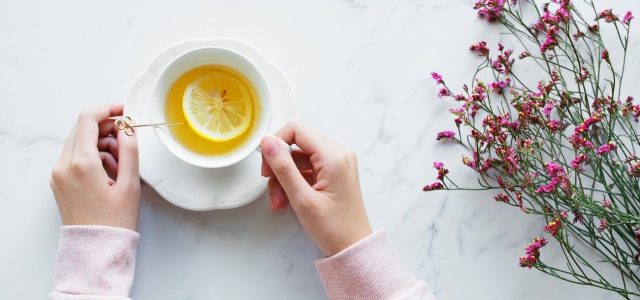
Therefore, when breastfeeding, you can drink regular warm tea with milk.
Take freshly squeezed carrot juice, add a little milk and olive oil. Drink half a glass twice a day.
Green tea is no less effective during breastfeeding. To increase its effectiveness, add a tablespoon of oregano to the brew. Drink this tea twice a day before feeding.
You can also prepare your own herbal mixture.
Grind the fennel and anise seeds, add oregano to the mixture (take 10 g of each herb). Pour 200 ml of boiling water over the ingredients, cover with a lid and leave for 2 hours. After straining, drink the medicinal solution 100 ml twice a day.
When do you really need to increase lactation?
It is recommended to stimulate milk production if you have stopped breastfeeding due to illness or travel. In such cases, there is a temporary decrease in milk production. Tea for nursing mothers will help increase its production.
You can resume lactation without drinking liquids. To do this, put your baby to your breast more often and express after feeding.
Women who unreasonably supplemented their child's feeding also have to increase lactation. Mixed nutrition inhibits the productivity of the mammary glands.
How to make tea at home
If it is possible to collect or grow some herbs yourself, then there cannot be a more valuable drink than a decoction prepared by yourself. Also, lactation tea can be prepared from ready-made store-bought mixtures of beneficial plants. Seeds, roots or leaves are added to the following lactation tea recipes:
Herbal mixture of anise and fennel
Brew a spoonful of dry seeds in boiling water (one and a half cups). You can drink the tea immediately after cooling, in small portions throughout the day. Plants with similar properties, for example, caraway, can complement the flavor bouquet.
Lemon, ginger and lemon balm - a drink for lactation
If these ingredients, when fresh, do not cause allergic reactions in mother and child, then you can use the classic recipe. Ginger root is crushed, boiled, honey, citrus fruits, and lemon balm are added. This tea has a tonic effect, has a warming effect and affects the flow of mother's milk.
Egyptian yellow tea
Use dried fenugreek seeds. One or two teaspoons of the plant are poured with water (1 cup of boiling water) and boiled for up to 10 minutes. Lemon, ginger or honey are added for taste.
Collection according to D. Yordonov
Prepared from anise, dill and oregano in equal proportions. The plants are crushed, mixed with water (one glass of boiling water per one teaspoon of the mixture), infused and taken one spoon up to three times a day.
Kalmyk milk tea
This recipe will help a nursing mother not only increase the volume of milk produced, but also improve its quality. Indeed, thanks to the ingredients in its composition, the drink contains: fluorine, iodine, manganese, vitamins C, B, PP, nicotinic acid. For the classic cooking formula you will need:
- green tea - 100 grams;
- cold purified water - 1 liter;
- 10% cream - 0.75 liters;
- butter - from 25 grams;
- table salt - approximately 0.5 tablespoon;
- black pepper (peas) - 2-3 pieces;
- spices, nutmeg - to taste and as needed.
Green tea leaves are crushed, poured with water, and brought to a boil. Cover with a lid, reduce heat and leave for half an hour. Then add cream, leave to cook for another 10 minutes, then add butter, salt, and pepper. After removing the floating tea leaves, remove from the heat. Leave for about 5-10 minutes, add spices and serve in portioned cups.
Kalmyk tea has no contraindications, with the exception of an allergy to lactose or individual intolerance to the components of the drink.
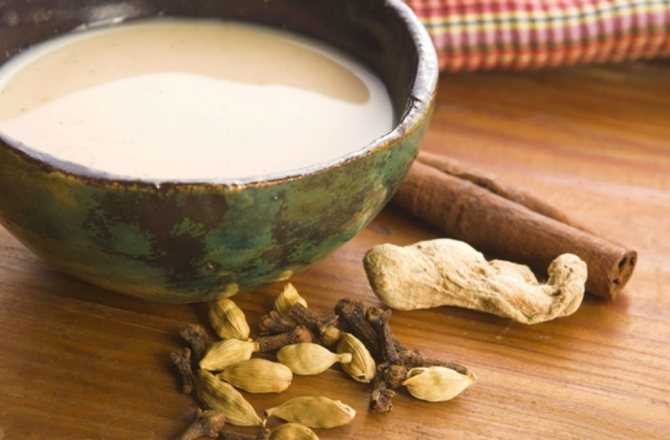
Kalmyk milk tea is rich in beneficial microelements and has almost no contraindications for use during breastfeeding.
Dill infusion
Use dill seeds (1 teaspoon) and boiled water (one glass). Pour in the seeds, infuse, filter and drink in small portions up to 6 times a day before the next feeding of the baby. There are no allergic reactions when consuming the infusion, and the infusion will help infants cope with colic.
Green tea with oregano
Take green tea and oregano in equal proportions (one tablespoon each). Pour a glass of boiling water and brew up to two times. You can drink up to two glasses of this tea per day - half a mug before meals.
Decoction with thyme
You can prepare a healing drink in two ways: the first is to brew thyme along with regular tea. Then take two or three spoons of tea leaves and one spoon of herbs. Pour water, brew and drink like regular tea.
Or a healthy decoction is prepared only from the plant itself. Pour water over the crushed plant and infuse. Then drink the decoction as tea. The proportions used are: 2.5 tbsp. spoons of the plant and 0.5 liters of boiled water.
Nettle infusion
For preparation you will need: a young plant, water. Pour 25 leaves into a liter of boiled water, boil until boiling, turn off the heat and let it brew for about half an hour. Take a few spoons thirty minutes before feeding.
Lactation collection
An equal amount (1 tablespoon each) of nettle, lemon balm, sweet clover, fennel (flowers) and 1 teaspoon of dill seeds is poured into three liters of boiling water. Infuse the resulting mixture, then drink it as tea several times a day.
Ginger decoction
Chop the ginger, take 2 tablespoons of the ingredient and pour boiling water over it. Insist and drink before feeding; up to five approaches per day can be done. The decoction is taken for a long time to increase lactation, up to 7 days.
Rose hip decoction
The fruits of the plant are collected and dried. Grind, add water and cook over medium heat for about 15 minutes. Take 1 heaped tablespoon per quarter liter of water. Strain after cooling and drink.
How is breast milk produced?
Lactation is a natural process of milk production and usually does not require additional stimulation. Moreover, its volume does not depend on the size of the female breast or on the amount of fluid consumed. The basis of what is happening is a change in hormonal levels, which begins during pregnancy.
The production of the required amount of milk occurs thanks to 3 hormones: oxytocin, prolactin, lactogen. Entering the bloodstream, hormones cause lactation.
Hormonal synthesis is completed only if you stop breastfeeding.
The process of milk formation is based on 2 principles:
- Stimulation of the breast by the infant through sucking.
- Increased milk excretion, which increases its volume.
Therefore, it is necessary to resort to methods that stimulate the synthesis of nutrient fluid when it is really necessary.
How to understand that there is not enough milk
To determine the optimal balance, you need to observe the baby.
The following signs indicate underfeeding:
- underweight of the newborn;
- very rare urination – less than 20 per day;
- weak activity, pallor and dry skin.
If the baby suckles well and is in a good mood, then you should not drink lactation tea.
Indeed, in this case, the drink can provoke congestion in the chest and problems with the newborn’s digestion.
